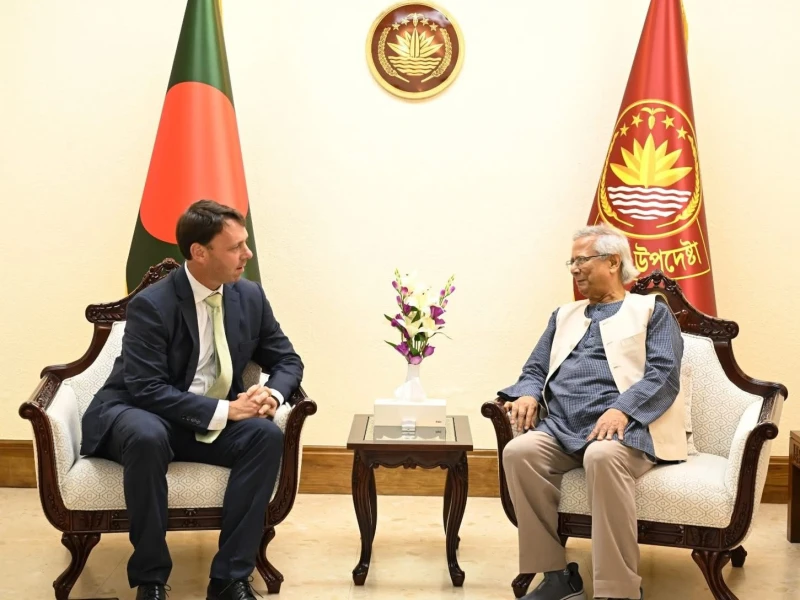Chief Adviser Professor Muhammad Yunus reiterated Bangladesh’s strong commitment to strengthening its partnership with the United States, with a particular focus on trade, investment, energy and development cooperation.
“We are very happy with this progress. It is key to our economy,” Yunus said while meeting Assistant United States Trade Representative (AUSTR) Brendan Lynch at the Chief Adviser’s Office in Tejgaon on Monday.
He welcomed the USTR’s July 31 decision to lower reciprocal tariff rates on Bangladeshi exports to the US—from 35 percent to 20 percent—describing it as a milestone in bilateral trade relations.
The meeting touched on ways to address the trade imbalance, with Bangladesh expressing interest in expanding imports of US agricultural products, including cotton and soybeans.
Enhanced energy cooperation, such as LPG imports, as well as civil aircraft purchases, drug control, and the ongoing Rohingya crisis were also discussed.
Yunus stressed that Bangladesh is ready to scale up imports from the US, hoping this would open the door for further tariff reductions and lead to a more sustainable, mutually beneficial partnership.
He voiced optimism about the early signing of the draft bilateral trade agreement now under negotiation, noting, “Our interests are aligned with those of the United States, which makes this process easier and more promising.”
The Chief Adviser also highlighted the interim government’s steps to implement the US-proposed 11-point Labour Action Plan, underlining its commitment to international labour standards and fair practices.
Looking ahead, he said Bangladesh expects more investment and concessional financing in critical sectors such as health and education.
“We must ensure the door to US investment in Bangladesh becomes wider,” he added, assuring that the interim government would work to improve the investment climate.
AUSTR Lynch commended Bangladesh’s constructive approach, recalling that the process began in February when the National Security Adviser initiated talks with an offer to unilaterally reduce the trade gap. He said this early engagement helped smooth negotiations and shape a positive outcome.
“You dispatched a tough negotiating team who worked very hard and effectively,” Lynch remarked, stressing the importance of timely implementation of the tariff agreements and purchase commitments.
Commerce Adviser Sheikh Bashir Uddin, National Security Adviser Khalilur Rahman, USTR Director for South Asia Emily Ashby, Senior Secretary for SDG Affairs Lamiya Morshed, Commerce Secretary Mahbubur Rahman, and US Chargé d’Affaires Tracey Ann Jacobson also attended the meeting.


 Prev Post :
Prev Post :
-1757946414.webp)